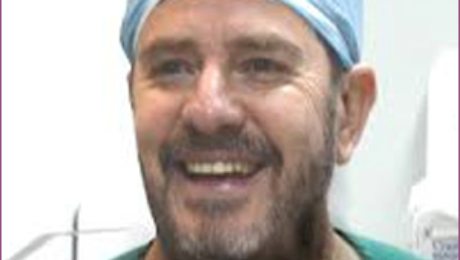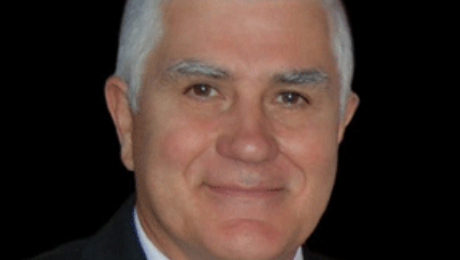Benito Novas, Global Stem Cells Group CEO, Slated to Give Keynote Speech.
Novas is a global expert on medical practice marketing strategies, specifically those pertaining to regenerative medicine.
MIAMI LAKES, Florida—Benito Novas, CEO of the Global Stem Cells Group, will serve as the keynote speaker at an event sponsored by the International Society for Stem Cell Application held in Mexico City on May 3-4, 2019. Novas is known as a global experts on medical practice marketing strategies, specifically those pertaining to the regenerative medicine field.
The Mexico City Stem Cells Seminar is a two-day medical congress and the first of its kind to offer an entire day focused on medical marketing. Novas will serve as both a keynote speaker and also as a marketing professional to offer his expertise during this portion of the congress.
As the CEO of the Global Stem Cells Group, Benito Novas is an entrepreneur and leader of an international enterprise that provides complete services to the regenerative medicine industry. Though his work, he has created programs that provide Stem Cells Certification opportunities for practitioners in the field in addition to supporting stem cells medical research efforts across the globe.

Benito Novas is known as a global expert on research marketing strategies, especially pertaining to the realm of regenerative medicine. He has extensively researched marketing strategies that are proven to grow medical practices worldwide, including those in the US. Putting his research to use, Novas has successfully grown regenerative medical practices across the globe.
In addition to his personal research pursuits, Benito Novas frequently lends his expertise as a marketing expert to private medical practices and other groups worldwide. He has also conducted medical business in various countries across South America and the Middle East.
To learn more about Benito Novas, visit his LinkedIn profile at https://bit.ly/2IMgGtJ.
- Published in Press Releases
Cancun Stem Cells Center Offers Hope for US Patients Suffering from Degenerative or Chronic Diseases
Free from US regulatory constraints, the center offers stem cells protocols needed to effectively treat a wide variety of disease.
MIAMI LAKES, Florida—For physicians based in the United States looking for high-quality patient care in the realm of regenerative medicine, the Stem Cells Center in Cancun, Mexico offers a cutting-edge care solution outside of the US. The Cancun center is a member of the Global Stem Cells Group network, which is comprised of a multi-disciplinary community of scientists and physicians collaborating to treat diseases and lessen human suffering through science, technology and regenerative medicine.
A number of conditions that patients present may require physicians to use treatment methods that will increase the cell counts that are delivered during the protocol. For patients suffering from chronic degenerative conditions or disorders based in genetics, physicians may need to culture expanded autologous cells. Currently, autologous stem cell expansion conducted in labs before being reintroduced into patients is not a viable treatment option in the US due to regulatory constraints. Thus, both the patient and physician are left turning to less effective treatment options using only cells obtained in the medical office.
For patients suffering from some degenerative conditions, more involved methods of therapy and more aggressive ways of deploying cells may be necessary than current US regulations allow. To deploy these more aggressive forms of treatment, catheterization is ideal. To perform intricate catheterizations of the carotid artery and the vascular arteries of the brain, for instance, it is critical to have a properly staffed and equipped hospital to perform the procedure. A hemodynamics suite and having an intensive care unit nearby are essential tenets of such treatment protocols.
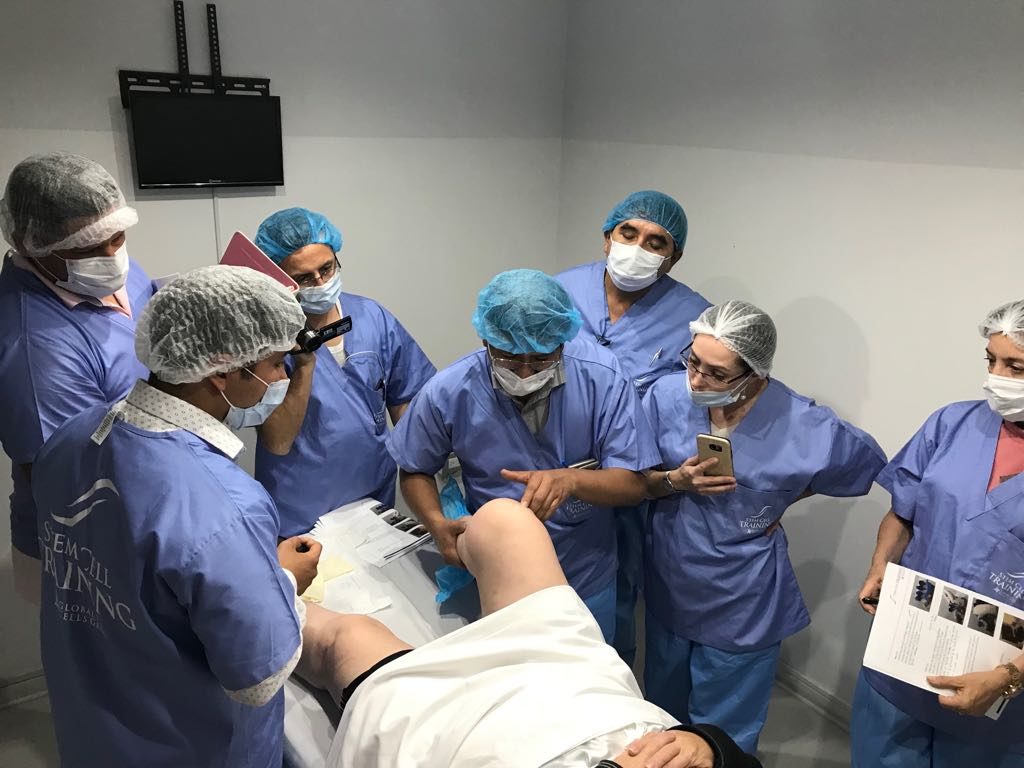
Patients requiring more aggressive and effective treatment options for degenerative and chronic diseases can receive the treatment they need at the Stem Cell Center in Cancun. Because the facility is located outside of the US, patients and physicians are not bound by regulatory limitations affecting lab-expanded autologous cells.
The Global Stem Cells Groups’ facility in Cancun is a Level 3 hospital equipped with an intensive care operating room and a hemodynamics suite ideal for patients needing critical treatments using regenerative medicine. Hospital staff includes a highly-ranked, high-level specialist in the area of regenerative medicine. Current facility protocols are in place to cater to patients needing the facility’s specialized services, and the hospital is associated with a local laboratory that can easily provide the amount of allogeneic cells needed for treatments requiring them.
Physicians with patients who may benefit from the medical services offered at the Stem Cells Center in Cancun are invited to reach out to set up a meeting to learn more about what services the facility offers and how to access the center for treatment. To learn more about the Global Stem Cells Group and the Cancun facility, visit http://www.stemcellsgroup.com/.
- Published in Press Releases
Which Works Better, Viscosupplementation, or Platelet Rich Plasma?
One of the treatments that the FDA approved for knee arthritis is a Hyalronic Acid (HA) injection, sometimes also known as Viscosupplementation. It has been incredibly successful for knee arthritis. In fact, so successful that many physicians are starting to use it on other parts of the body, like the hip and shoulder, which the FDA does not approve of.
HA, when injected, works like the fluid that naturally surrounds your joints. This fluid can be like a lubricant for your joints, and absorb shock, allowing bones that otherwise cause arthritis pain cause much less. Over time, it is even absorbed into the joint, which can cause the body to create a more stable cartilage all on its own.
The evidence for this treatment is astounding, with a systematic review of 76 trials, all of which were randomized controller trials. The review noted that HA, when injected, can benefit function, reduce pain, and can be a reliable and effective treatment for knee osteoarthritis.
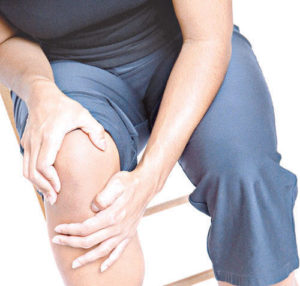
On the other hand, there is PRP therapy. Platelet Rich Plasma, or PRP, which is a type of blood that has 6 to 10 times more platelets than what is normally found in blood. They even contain many growth factors, such as Epidermal Growth Factor, Connective Tissue Growth Factor, and many more. These can help heal injured parts of the body by using the bodies natural healing tools.
However, PRP is not regulated by the FDA, and devices that are used to make PRP require said approval. Aside from this, multiple studies shoe that PRP can be very effective in the treatment of tendon injuries, as well as for osteoarthritis. This treatment can even help in the reduction of pain. There are even more studies being conducted on whether it can help other things, such as hair regrowth, cardiac muscle repair, and even dermatologic rejuvenation.
So should you use HA injections, or PRP?
In many studies, PRP has bee demonstrated to work just as well, if not better than HA. HA is also only FDA approved for the knee, meaning that it is not approved or covered for the use in any other joint. Also, the risk of infection and rejection is far less while using PRP, as it is a substance that comes from your own body, and contains white blood cells, which can help fight infection.
PRP also saves money in the long run, as using HA in a joint other than the knee is not FDA approved or covered by insurance. As a result, it can cost your patient 1500$ or more. This can even be on top of various other charges, such as doctors visits, and even the injection itself. PRP, on the other hand, only costs from 800 to 1200$ out of pocket.
So PRP has been demonstrated to be just as effective, if not better, than HA injections when it comes to arthritis pain. It does not pose a risk for infection or and auto-immune reaction either, and is even far cheaper than HA. So picking which one to use should be a no-brainer.
- Published in Corporate News / Blog
How can PRP treat Tennis Elbow?
Despite what the name may imply, not all people who suffer from Tennis Elbow even play tennis. In fact, most of them aren’t. Many of them can be painters, butchers, plumbers, carpenters, and even much any career which can overuse the muscles in the forearm. This can cause the tendons elbow to become painful and inflamed.
The most common treatment for Tennis Elbow after the injury has taken place is rest, anti-inflammatory medicines, and generally physical therapy if it is needed. However, this is more of a temporary fix than a longstanding one. In many cases, if untreated, the pain will worsen, and many need things such as braces for their arm, injects of steroids, and shock wave therapy. Sometimes, although not often, they might even need surgery.
Most insurance companies are able to cover this surgery, as it is deemed medically nece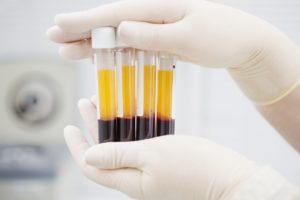 ssary. However, it does not always end up with the best results. On occasion, surgery may even leave you in more pain than you were in before, potentially causing the need for more surgeries.
ssary. However, it does not always end up with the best results. On occasion, surgery may even leave you in more pain than you were in before, potentially causing the need for more surgeries.
So as an alternative for surgery, perhaps try PRP, or Plasma Rich Platelet Therapy? This is a pretty simple procedure that utilizes the platelets and cells in your own body to heal your arm from the inside out. We just take out a bit of your blood, put it in a centrifuge, and extract the PRP to use on your injury. After awhile, it become good as new, without any need for surgery. It also does not need any anti-inflammatory medications, which can lower the side effects that you will see from medications and multiple surgeries.
So try it out if you would like a more holistic way of healing yourself.
- Published in Corporate News / Blog
Enrique Testart, M.D.
Enrique Testart, M.D., Global Stem Cells Group’s Chief Medical Officer (CMO), is a surgeon specializing in child trauma microsurgery.
Dr. Testart is also a medical entrepreneur and founder of Consortia Innovas S.A. in Santiago, Chile, dedicated to consulting and clinical health management for clinical management firms and research and development-oriented planners in the latest treatments in regenerative medicine as they become available.
A native of Santiago, Chile, Dr. Testart’s medical studies took him all over the world, including orthopedics studies under the direction of Prof. Jean Paul Metaizeau, M.D. in France.
He is in charge of all Global Stem Cells Group divisions and programs in Chile, including patient recruitment through Cellgenic, medical training and certification through Stem Cell Training Inc., and everything related to the sale of equipment disposable through Adimarket.
- Published in Advisory Board Members
Julio Ferreira, M.D.
Julio Ferreira, M.D.
Global Stem Cells Group Advisory Board member
Julio Ferreira, M.D., is an internationally recognized and respected cosmetic surgeon and professor of medicine and aesthetic surgery at the Institute of Biomedical Sciences, University of Sao Paulo, Brazil;
As director of Clinica Ferreira in Argentina, Dr. Ferreira is dedicated to the combination of art and science in aesthetic medicine.
Dr. Ferreira serves as president of the South American Academy of Cosmetic Surgery and expert examiner at the International Board of Cosmetic Surgery. He also serves on the International Editorial Advisory Board of the American Journal of Cosmetic Surgery; former President of the International Academy of Cosmetic Surgery 2005/2007; a member and examiner, International Board of Cosmetic Surgery; Corresponding Fellow of the American Academy of Cosmetic Surgery; Honorary Member of the Spanish Society of Cosmetic Medicine and Surgery; Honorary Member of the Eurorusa Confederation of Societies of Aesthetic Plastic Surgery; Honorary Member of the Bulgarian Society of Cosmetic Surgery; Honorary Member of the Chilean Society of Cosmetic Surgery and Lipoplasty; Honorary Member of the Italian Society of Aesthetic Surgery, and Honorary Member of the French Society of Aesthetic Surgery.
- Published in Advisory Board Members

![WhatsApp-Image-2019-04-26-at-2.51.59-PM[1]](https://stemcellcenter.net/wp-content/uploads/2019/11/WhatsApp-Image-2019-04-26-at-2.51.59-PM1-460x260_c.jpeg)
![WhatsApp-Image-2018-06-01-at-10.34.32-AM[1]](https://stemcellcenter.net/wp-content/uploads/2019/11/WhatsApp-Image-2018-06-01-at-10.34.32-AM1-460x260_c.jpeg)
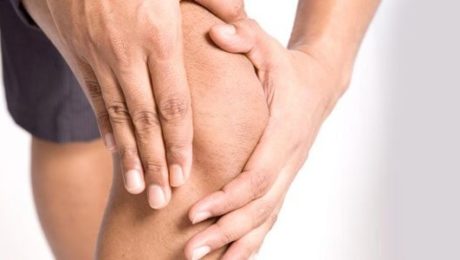
![flexura_codo[1]](https://stemcellcenter.net/wp-content/uploads/2019/11/flexura_codo1-460x260_c.jpg)
